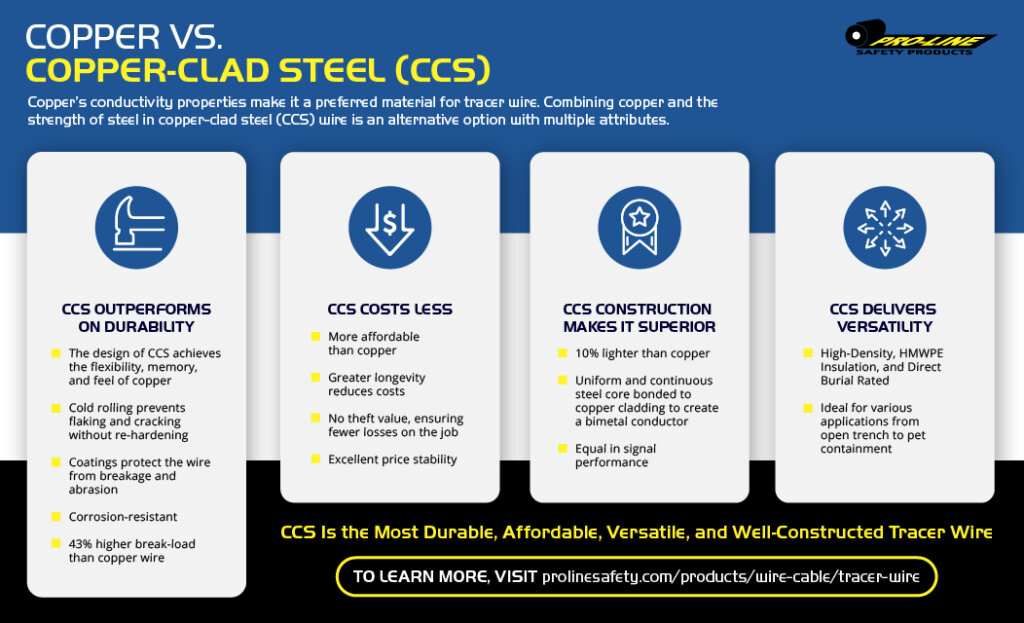When it comes to tracer wire, the material of choice is often copper. However, there is an alternative with numerous advantageous properties – copper-clad steel (CCS) wire. This remarkable combination of copper and steel offers a wide array of benefits that make it stand out in various applications. In this article, we will explore the reasons why CCS wire has gained recognition and why it is considered a superior choice in many industries.

CCS Outperforms on Durability
One of the key advantages of CCS wire is its exceptional durability. It offers several features that set it apart from conventional copper wire:
Flexibility, Memory, and Feel: The design of CCS wire is engineered to provide the same level of flexibility, memory, and feel as copper wire. This ensures that it can be easily manipulated and installed in various applications.
Resistance to Flaking and Cracking: Unlike some materials, CCS wire undergoes a cold rolling process that prevents flaking and cracking without the need for re-hardening. This means that CCS wire maintains its structural integrity even under challenging conditions.
Protective Coatings: CCS wire is often coated to provide protection against breakage and abrasion, further enhancing its longevity and reliability.
Corrosion Resistance: The steel core of CCS wire is highly resistant to corrosion, making it an ideal choice for applications exposed to harsh environmental conditions.
Higher Break-Load: CCS wire boasts a remarkable 43% higher break-load than conventional copper wire, which makes it a more robust and resilient choice for various applications.
CCS Costs Less
While CCS wire offers superior durability and performance, it also proves to be a cost-effective solution:
Affordability: CCS wire is more affordable than pure copper wire, making it a budget-friendly choice for projects of any scale.
Longevity Reduces Costs: The extended lifespan of CCS wire results in reduced replacement and maintenance costs over time, further enhancing its cost-effectiveness.
No Theft Value: Unlike pure copper wire, CCS wire has minimal theft value, ensuring that you experience fewer losses on the job. This is particularly important for construction sites and other high-risk areas.
Price Stability: CCS wire offers excellent price stability, making it a reliable choice for budget planning in your projects.
CCS Construction Makes It Superior
The construction of CCS wire contributes significantly to its superior performance:
Lighter Than Copper: CCS wire is 10% lighter than pure copper wire, making it easier to transport and install.
Uniform Steel Core: CCS wire features a uniform and continuous steel core bonded to copper cladding. This creates a bimetal conductor that offers equal signal performance to pure copper wire.
CCS Delivers Versatility
CCS wire is known for its versatility, making it suitable for a wide range of applications. Key features include:
High-Density Insulation: CCS wire often comes with high-density, HMWPE insulation, which enhances its insulation properties and signal transmission.
Direct Burial Rated: It is suitable for direct burial applications, ensuring it can be used in a variety of conditions and environments.
Wide Range of Applications: From open trench projects to pet containment systems, CCS wire’s versatility makes it a valuable asset in various industries.
In conclusion, Copper-Clad Steel (CCS) wire stands out as the most durable, affordable, versatile, and well-constructed tracer wire solution. Its combination of copper and steel brings together the best of both worlds, offering a material that excels in performance and cost-effectiveness. Whether you’re working on a construction site or installing a pet containment system, CCS wire is the go-to choice for reliable and long-lasting results.
For more information on CCS wire and its applications, please visit prolinesafety.com/products/wire-cable/tracer-wire.



